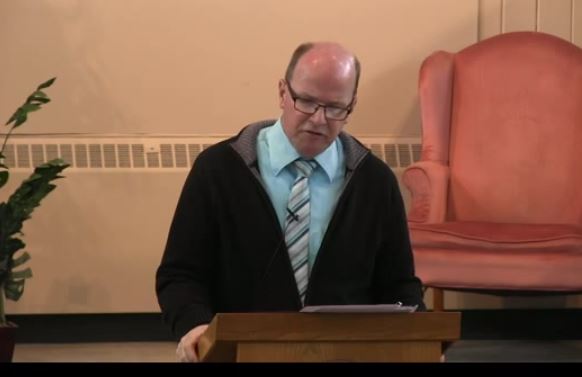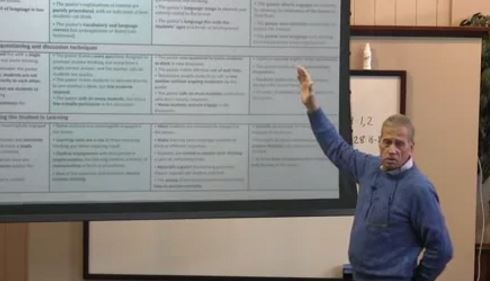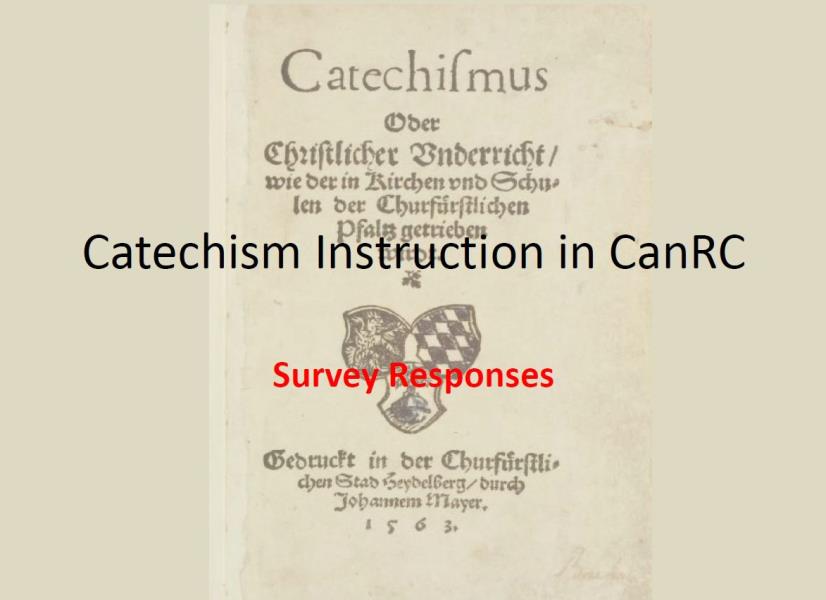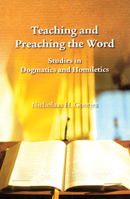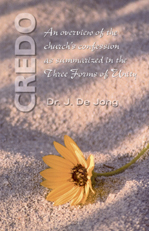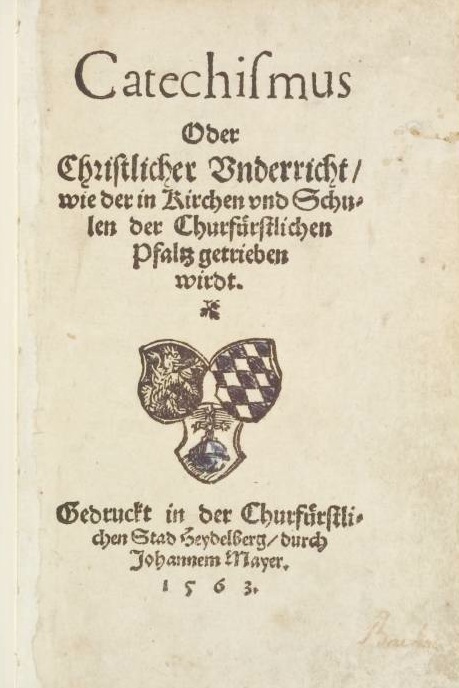Resource Finder
Displaying all results for topic 'Heidelberg Catechism'
21 Result(s)
Resources
Proclaiming the Doctrine of the God's Word: Using the Catechism Well in Worship
In Reformed churches catechism preaching, as it is often called, has been a staple in one of the weekly worship service for centuries. Long-standing practices, though, often need a fresh look. Why do we have this agreement in our church order? What questions have been raised about it, both in the past and the present? This speech explores the practice of preaching the doctrine of God's Word, using the time-honoured Heidelberg Catechism. It looks at the rationale underlying it and makes suggestions about how this kind of preaching can best serve God's people in our day and age.
The Heidelberg Catechism at the Synod of Dordt
Though the Synod of Dordt met primarily to address the Arminian controversy, the Heidelberg Catechism came up six times on the synod’s agenda. This presentation explores the six ways the synod dealt with the catechism: (1) The synod discussed ways to enhance regular catechism preaching in Sunday afternoon services. (2) It discussed ways to improve the manner of catechizing, for both youth and adults, in the home, school and church. (3) The Remonstrants (Arminians) presented their observations and suggestions for revision of the Heidelberg Catechism. (4) The Palatine delegation from Heidelberg gave its response to the Remonstrant observations. (5) The catechism was examined by the synod and approved by all delegations, both Dutch and foreign, as consistent with the Word of God. (6) The synod prepared forms of subscription, by which ministers, theologians, and teachers were required to affirm that the Catechism, along with the Belgic Confession and Canons of Dordt, fully agree with the Word of God.
To view the handout that goes with this video please see here.
Developing a Multi-Year Program for Catechism Teaching: A Current Example
Rev. Peter Feenstra describes his approach to Catechism teaching and the multi-year curriculum which he has developed over the years. Recorded during the 2017 January Interim semester.
Developing Rubrics for Evaluation of Catechism Teaching: A Suggested Approach
Mr. Pieter Torenvliet (retired school principal, Abbotsford, BC) presents an evaluation form that could be used by elders who are called to visit and observe Catechism classes. Recorded during the 2017 January Interim semester.
To view the powerpoint presentation that goes with this video please see here.
To view the lesson plan on Lord's Day 8, please see here. and here. To view the student worksheet on Lord's Day 8, please see here.
Commitment and excitement about Catechism teaching: A review of ministers’ responses
Mr. Pieter Torenvliet presents the results of a survey he conducted among ministers in Canada and Australia, asking them about their approach to and experiences with Catechism teaching. Recorded during the 2017 January Interim semester.
The powerpoint presentation that goes with this video is available here.
Teaching and Preaching the Word
With this collection, some of the most important studies of Dr. N.H. Gootjes are made available to a wider readership. The topics covered remain as relevant as ever: creation and general revelation, the birth and work of Christ, the work of the Holy Spirit, the Reformed Confessions, sacraments, and preaching.
Author: N.H. Gootjes. Publisher: Premier Publishing, 2010. ISBN 9780887560989
Credo: An Overview of the Church's Confession as summarized in the Three Forms of Unity
“What do you believe about God? About salvation and redemption? About the Ten Commandments?” These are the kinds of questions young people are confronted with in today’s climate of religious pluralism. This book—originally designed as a course for public profession of faith classes—has been structured to help young people answer these questions and to confirm them in their own faith. It presents an overview of the continental Reformed confessions known as the Three Forms of Unity: the Heidelberg Catechism, the Belgic Confession, and the Canons of Dort.
Author: J. De Jong. Publisher: Premier Publishing, 1997. ISBN 0887560687.
The Threefold Office of Christ and the Believer (Video)
A close look at Christ as our chief Prophet, only High Priest, and eternal King. Also, the implications of this for the lives of Christians is explored.
Discussion Guide concerning The Heidelberg Catechism
The Comforted I in the Catechism (Video)
The Heidelberg Catechism is known for its warm, personal tone. In this speech the author explores why this Catechism uses personal pronouns, such as I, me, and my when it does.
Catechism Preaching: Keeping it Fresh and Relevant
The Heidelberg Catechism, as a summary of God's Word, is used regularly in the afternoon worship service of many Reformed churches. How can the preacher keep his catechism sermons vibrant when he comes back to the same Lord's Days year after year?
From Catechumen to Communicant: Setting up a Curriculum for Catechetical Instruction
A speech presented at the CRTS January Interim 2013 dealing with how to arrange various levels of catechetical instructions from a pedagogical point of view. Mrs. Christine van Halen-Faber is the principal of the Covenant Canadian Reformed Teachers College.
Catechism Preaching
Dr. J. Visscher, associate pastor of the Langley Canadian Reformed Church, discusses how catechism preaching is different from preaching on a Scripture passage.
The Threefold Office of Christ and the Christian (Audio)
A close look at Christ as our chief Prophet, only High Priest, and eternal King. Also, the implications of this for the lives of Christians is explored.
The Threefold Office of Christ and Christians
An article commemorating the 450th anniversary of the Heidelberg Catechism and focusing on LD 12
The Comforted I in the Catechism (Audio)
The Heidelberg Catechism is known for its warm, personal tone. In this speech the author explores why this Catechism uses personal pronouns, such as I, me, and my when it does.
New Confessions: Do We Need Them?
An evaluation of need for, and process involved in, updating our confessions or writing new ones.
A Blessed Commemoration: The Heidelberg Catechism is turning 450
A survey of some of the events and initiatives surrounding the 450th anniversary of the Heidelberg Catechism
Why Frederick III wanted the Heidelberg Catechism and why we should too
A survey of the original preface of the Heidelberg Catechism, including the original motivation for writing it, and how this still applies today.
The Character of the Afternoon Service
Why our afternoon services should have a teaching quality
Why Second Service
Do we still need a second service with catechism teaching?





